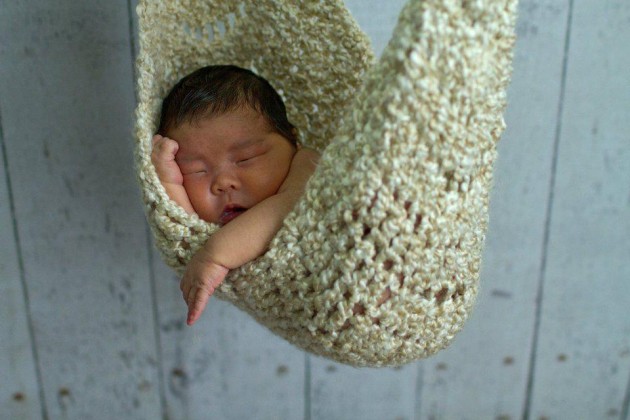Newlywed baby-making tips
Girl meets boy, gets married, sleeps together and pop! Out comes a baby. Such is the classic MediaCorp plotline that many Singaporean kids grow up with. Reality, however, isn’t always so simple.
Baby-making is no walk in the park. It’s not just about dispensing with a condom, or making love as many times as possible. In some cases, couples try for years without ever seeing a positive pregnancy result.
A person’s baby-making prowess is affected by things ranging from food to clothing, and it’s better that you know them sooner than later. More than just fertility facts, there’s a whole world of information out there that aspiring parents should be exposed to.
From baby bonuses to tips on having a baby, here’s a quick run-down through it all.
1. Team boxers, not briefs

Boxers or briefs? This is one of those debates that never reach a consensus. But when it comes to baby-making, boxers triumph over briefs easily.
Boxers provide your pelvic region with a more cooling temperature that is more conducive for sperm production. If you’re one who likes to keep things down there snug and tight, you may want to start letting in a bit of breeze.
2. Go easy on the the beer and wine

Before the alcoholic in you starts panicking, you don’t need to abstain from your whiskey and beer forever. Hold back on the drinks for about 3 months before you start trying for a baby.
There’s a strong body of research that suggests alcohol hinders sperm production. It’s better to be safe than sorry if you’d like to maximise your chances in the bedroom. Slight bummer it may be, but I’m sure even your liver will thank you for that.
3. Keep your laptops off your lap

At some point of your life, you would’ve heard that resting your laptops on your laps can cause cancer. The truth to that statement remains unknown, but there’s strong evidence that your innocuous gadgets could be the reason why that pregnancy kit never turns out positive!
Like #1, research has shown that heat from your laptop actually kills sperm! For those of you who have a penchant for playing dota on your lap while watching the television, you may want to start dropping that habit.
4. Your first-born entitles you to a $8000 baby bonus from our gahmen

Take comfort that we have a very generous government who gives out cash grants of $8,000 for your first or second-born child to help couples defray some financial cost. You’ll get even more for your third and subsequent children!
Two months before your child is due for delivery, sign up for the Baby Bonus Scheme to receive the cash giveaway.
In addition, babies born on or after 24 March 2016 will receive the Child Development Account (CDA) First Step without parents having to save in the CDA first. These funds can be used to offset educational and healthcare related expenses. So remember to set up an account through OCBC, DBS or UOB.
5. NEW maternity/paternity leave entitlements from March 2016

Currently, working fathers are entitled to 1 week of paternity leave, and an additional week of paternity leave offered by employers on a voluntary basis.
From 1 January 2017 onwards, the second week of paternity leave will be made mandatory for employers to provide, for fathers of citizen children.
Thanks to improved entitlements, parents now have more time to help their precious tot settle into the family. Women can soon share more of their maternity leave with their husbands, so they can have the liberty to return to work earlier!
Click here for updates on Shared Parental Leave.
6. The Medisave grant for newborns just got an upgrade!

For the uninitiated, every Singaporean newborn is given a Medisave account that can be used to offset the baby’s health care costs. In fact, all eligible newborns will be given the grant automatically without their parents even lifting a finger!
The best part? The Medisave grant for newborns was increased from $3,000 to $4,000.
7. Sound financial planning is good family planning

Being financially savvy can help with good family planning.
Sit down with your spouse and determine the strength of your current financial situation. Can you both work towards a new addition to the family? What happens if your spouse or you decide to quit your job and care for the baby?
If the thought of math scares you, engage a financial planner to do the analysis. He can even recommend a savings plan to help you cope better with the baby’s arrival in due time!
8. The difficult conversations are the most important ones

The key to any successful marriage is communication. When you’re about to take the parenthood plunge, it becomes even more important.
Above all things, a frank discussion on family planning is most fundamental. How do we prepare psychologically to be parents? How will we manage our career paths together? How do we share the parenting duties? These need to be hashed out as a team when trying for a baby.
You should also speak with your parents and in-laws, and involve them as supporting roles. Are they able to assist in caring for the baby when it arrives? If yes, how often can they do so? Conflict is no stranger in marriages, but future misunderstandings can be minimised by making plans together.
9. Keep the spark in your marriage alive

Your honeymoon may have long passed, but don’t despair just yet. Your babymoon is about to begin!
Celebrate the last months of alone time with a romantic vacation, or have your pregnancy glow captured on film for keepsake. Contrary to popular belief, healthy pregnant women can have just as much sex as before, so there’s no need to kiss intimacy goodbye. In fact, it’s not uncommon for women to possess a stronger libido during pregnancy.
Having a baby doesn’t spell the end of the romance. Date nights are still very much possible and even necessary. Make the time by arranging for a babysitter and relive your courtship days with a candlelit dinner!
10. Go for a fertility health check with your partner

There’s some uncertainty surrounding fertility health checks, but in reality, you don’t have to be infertile to go for one at a fertility clinic or hospital. Just as how you wouldn’t go to the dentist only when all your teeth starts to decay!
A fertility health check is an assessment of a couple’s fertility wellness. Whether you’re raring to have a baby now or sometime down the road, it’s always better to be in the know. The earlier you discover your chances of natural conception, the more time you have to accommodate lifestyle changes.
For all couples and parents

Most, if not all parents, will tell you that their child is the best thing that’s ever happened to them. Whatever personal achievements they’ve pulled off pales in comparison to the sheer happiness of having birthed a chubby bundle of joy.
Whether you’re newlyweds or a married couple who have been trying for years, a fertility health check should be on your to-do list. In fact, it should be a part of every couple’s married life.
This post is brought to you by I Love Children as part of Know Your FERTILITY WELLNESS 2016 campaign.
Featured image credit: Oh So Fickle

Drop us your email so you won't miss the latest news.









